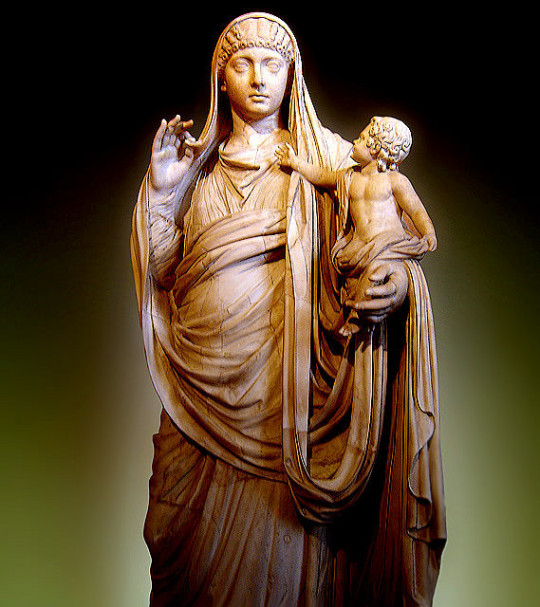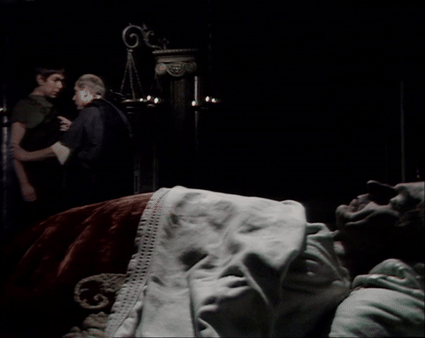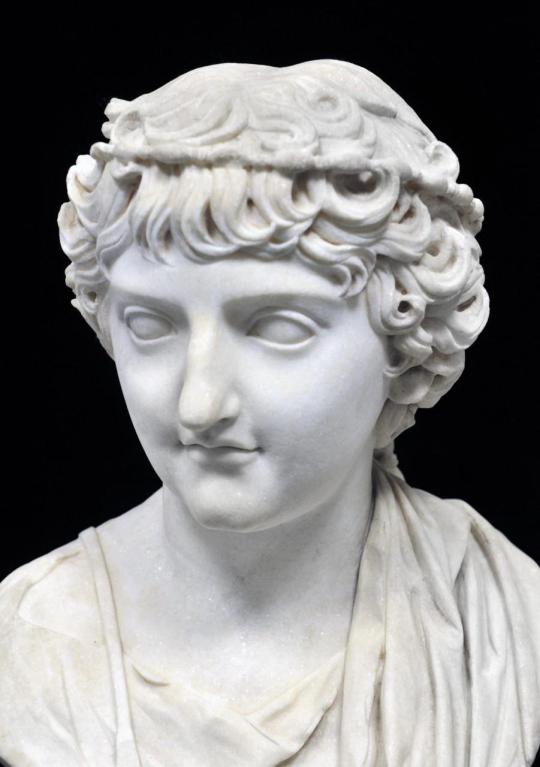#Britannicus
Explore tagged Tumblr posts
Text

Consumed Britannicus and photos of Patrice playing Nero and now I’m a rewired soul
158 notes
·
View notes
Text


FINISHED THE LINEUP i can die now. ok not really now i have a comic to make
PLEASE click and zoom in! this canvas is almost 6000 px long the quality is awful from afar
separates and my rambling under the cut
i started this in late march while also making a different oc lineup and worked on and off on this one for 3 months. good lord. the artstyle is simplified to how i will most likely be drawing them in the comic so i dont go insane from the details. as long as it doesnt change again like it did here. my bestie said everyone here looks like theyre drawn by a different person IDK WHAT HAPPENED curse of my artstyle.
also info for new people here [hi] everyone here is my version of historical figures aside from felix he is a full on original character. its an alternative timeline where britannicus lives and both he and nero are co-emperors







#nero draws#NKiR#< project#ancient rome#emperor nero#lucan#acte#britannicus#petronius#felix#tigellinus#horace
43 notes
·
View notes
Photo

Britannicus
Britannicus (41-55 CE) was the second child and only son born to the Roman emperor Claudius (r. 41-54 CE) and Valeria Messalina (c. 20-48 CE). Seen as a threat by Claudius' fourth wife, Agrippina the Younger (15-59 CE), and her son, the future Nero (r. 54-68 CE), Britannicus was poisoned the night before his 14th birthday.
Early Childhood
Born on 12 February 41 CE, he was originally named Tiberius Claudius Caesar Germanicus; the name Britannicus was added after his father's invasion of Britain. In his The Twelve Caesars, the ancient historian Suetonius (69 to 130/140 CE) wrote, "Claudius would often pick little Britannicus up and show him to the troops or to the audience at the games either seated on his lap or held at arm's length" (197) Claudius had a son by his first wife Urgulanilla, but the boy died accidentally before coming of age, and Britannicus became the obvious choice to assume the purple upon the emperor's death. However, this would soon change when Claudius married his niece Agrippina the Younger (15-59 CE). The emperor's new wife brought with her a hidden agenda; she had high aspirations for her son, the future emperor Nero (r. 54-68 CE).
Agrippina the Younger was the daughter of Emperor Tiberius' (r. 14-37 CE) nephew Germanicus (15 BCE to 19 CE) and Agrippina the Elder (14 BCE to 33 CE), making her the great-granddaughter of Augustus (r. 27 BCE to 14 CE). Her marriage to Gnaeus Domitius Ahenobarbus produced one son Lucius Domitius Ahenobarbus, the future Nero (b. 37 CE). Gnaeus, who died when Nero was three, was extremely violent and was described by his contemporaries as "a despicable character." Two years after Domitius' birth, Agrippina was exiled by her brother Caligula (r. 37-41 CE). After Caligula's assassination in 41 CE, one of Claudius' first acts was to recall her. Her strong ties to the Julio-Claudians would pose a serious challenge to young Britannicus' position as the emperor's heir and, unfortunately for Britannicus, the highly aggressive Agrippina would stop at nothing until little Domitius upended his position. According to Matthew Dennison in his The Twelve Caesars, Agrippina "was not distracted by bodily appetites; arrogance and an undistracting focus steadied her performance." (156)
In 40 CE Domitius' father died of dropsy. Upon her return to Rome from exile, the widowed Agrippina married Gaius Passienus Crispus, who had recently divorced Gnaeus Domitius Ahenobarbus' sister Domitia. The marriage ended before 47 CE, possibly due to poisoning. Agrippina inherited his vast wealth, making her extremely rich. Widowed twice, she set her sights on husband number three: her uncle Claudius. Claudius showed little interest in obtaining another wife; there was still strong competition for the old emperor: Aelia Paetina (his second wife) and Lollia Paulina (Caligula's third wife). Lollia would later be exiled on the orders of Agrippina where a suicide would soon follow. However, Claudius' financial secretary Marcus Pallas favored Agrippina, and on 1 January 49 CE, she became Claudius' fourth wife.
Having married the emperor, her next objective was to secure the adoption of her son, and on 28 February 50 CE, Lucius Domitius became Nero Claudius Drusus Germanicus Caesar. Suetonius wrote, "In his last years, Claudius made it pretty plain that he repented of having married Agrippina and adopted Nero" (204). Realizing, the possible danger posed by Nero and his mother, Claudius told his son repeatedly "to grow up quickly." With the adoption of Nero secured, Agrippina turned her attention to the one serious obstacle to her son becoming the emperor: Britannicus.
Continue reading...
32 notes
·
View notes
Text










I, Claudius Episode 13 Old King Log
I have been too benevolent. I repaired the ruin my predecessors spread. I reconciled Rome and the world to monarchy again. By dulling the blade of tyranny, I fell into great error. By sharpening that blade I might redeem that error. Violent disorders call for violent remedies.
#i claudius#bbc i claudius#claudius#emperor claudius#derek jacobi#narcissus#pallas#agrippina the younger#barbara young#britannicus#tiberius claudius caesar britannicus#ancient rome#roman history#roman empire#perioddramaedit#it is done
40 notes
·
View notes
Text


Portraits of Julio-Claudian prince and princess, identified as Britannicus and Claudia Octavia respectively. They certainly look like they could be siblings.
57 notes
·
View notes
Text

[Jean Racine’s Britannicus; Translated into English Rhymed Couplets by Geoffrey Alan Argent.]
@catilinas the enemy brotherrrrr.
13 notes
·
View notes
Text
Was Britannicus a bastard, changeling, fake child, or something more sinister? (dun dun dun) (according to Nero)
All my information is coming from "Suet. Ner. 7.1: Britannicum subditivum" by Michael B. Charles. Pls pls pls read that if you want to hear what I'm going to say except 5000000 times more educated and detailed. This is just a little summary of what he said.
In Suetonius Nero 7, it is said that Nero tried to convince Claudius that Britannicus was "subditivus," after Britannicus deadnamed him (ancient Rome was a wild place). If you search it up in a dictionary, subditivus means stuff like substituted, counterfeit, spurious, fake, and other things along those lines. But, in this context, what exactly is it supposed to mean? That Britannicus is a bastard? That Britannicus isn't a human? That Britannicus is an imposter?
Unfortunately, we don't really know the exact meaning! If you look at how subditivus was most commonly used in other texts, you would be inclined to think that Britannicus is fake, supposititious, an imposter (though still a person! Just, not the real real Britannicus. Not the Britannicus Claudius believes him to be. Swapped at birth or something) and this is the most common interpretation, at least in English translations of this passage.
If you look more at the context, you'd likely be thinking that Nero was questioning Britannicus' legitimacy, saying that Brit wasn't actually Claudius' son. Interestingly, we actually question that even today! I personally say that we'll never know, but there are people out there who have much stronger opinions on this than I do. The most concerning theory I've found is that Caligula was Britannicus father (!?).
All in all, no matter the exact meaning Suetonius wanted to convey here, the big idea was that Nero was trying to convince Claudius that Britannicus was not what Claudius thought he was. However, Nero did not mean that Britannicus wasn't a real child, or that Britannicus was a changeling in the exact way we Tumblrites think when we hear that word.
Again, I really recommend you read the actual article because he says it much better then I ever could, plus you can see all the juicy details and stuff.
29 notes
·
View notes
Text

Messaline portant Britanicus enfant (détail), Ier siècle apr. J.-C., Collections du Louvre, Paris, France
#Messalina#Britannicus#Rome#Roman Empire#ancient rome#classical antiquity#Antiquity#sculpture#art#art history#archeology#Europe#France#Paris#Louvre
13 notes
·
View notes
Text
thinking again about when Tacitus said “Let the people see the one in the insignia of imperial command, the other in his puerile garb, and anticipate the destinies of each," about Claudius granting Nero his toga virilis in such a public display and by doing so basically was stating that the next emperor has been named and that it was Nero all while Britannicus was standing right there.
#and nero was like 13#the youngest a boy could shed his bulla for the plain white boring toga of manhood#anyway reading tacitus is always a good time when you ignore all the racist and misogynistic things he likes to throw at you!#julio claudian dynasty#emperor nero#britannicus#emperor claudius#tacitus#roman history#roman empire#rome#history#classics
4 notes
·
View notes
Text

Thanks to @theromaboo I haven't been able to stop thinking about this guy, so I had to draw him - sleep deprived Britannicus, son of Emperor Claudius. Nero has been training on his kithara whole night, right next to his room :(
21 notes
·
View notes
Text

Diana dans "Britannicus" sur scène.
1 note
·
View note
Text
Junie from act 2 of Jean Racine’s Britannicus
0 notes
Text
1 note
·
View note
Text
can i. can i say this
nero @ britannicus
brothers alwaus have to kill each other fuck each other or die together. or any combination of the three,
11 notes
·
View notes
Text

Roman Sestercius bearing the image of Britannicus (with Mars on the reverse). The coin was struck in the provinces during the reign of his father Claudius. He was born Tiberius Claudius Germanicus on the 12 of February, 41 just weeks after Claudius became the Roman princeps and he was renamed Britannicus after the conquest of Britain. After Claudius married Agrippina the Younger, Britannicus was sidelined in favour of his adopted brother Nero and he didn't long outlive his father. He died on the 11th of February, 55, just a day before his fourteenth birthday when he was supposed to assume toga virilis and so officially become an adult under the Roman tradition. Nero allegedly had him poisoned after Agrippina implied that he may be easily replaced with Britannicus as emperor.
#britannicus#ancient rome#roman empire#ancient history#roman coin#ancient roman coins#ancient culture#julio claudian dynasty#I think a lot of people don't realize how young Britannicus was when he died#poor fella
29 notes
·
View notes
Text

Fellas. Is it gay for you to start your translation of Racine's play with this dedication?
[Jean Racine’s Britannicus; Translated into English Rhymed Couplets by Geoffrey Alan Argent.]
17 notes
·
View notes